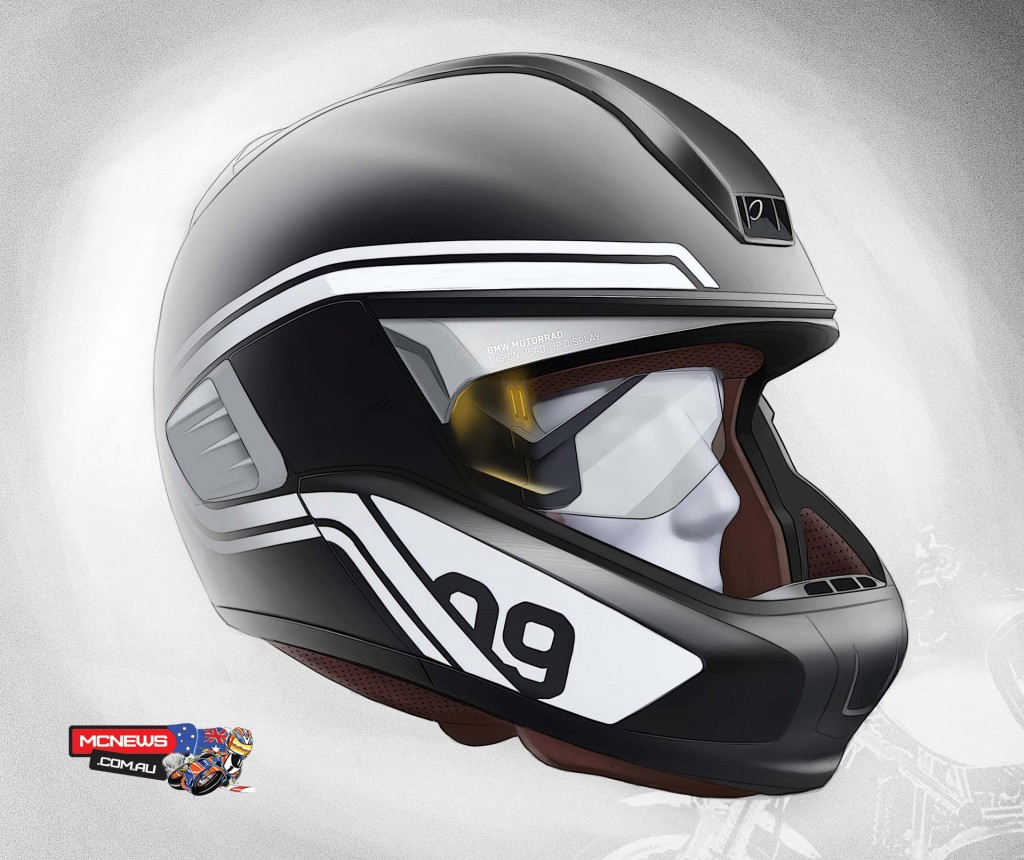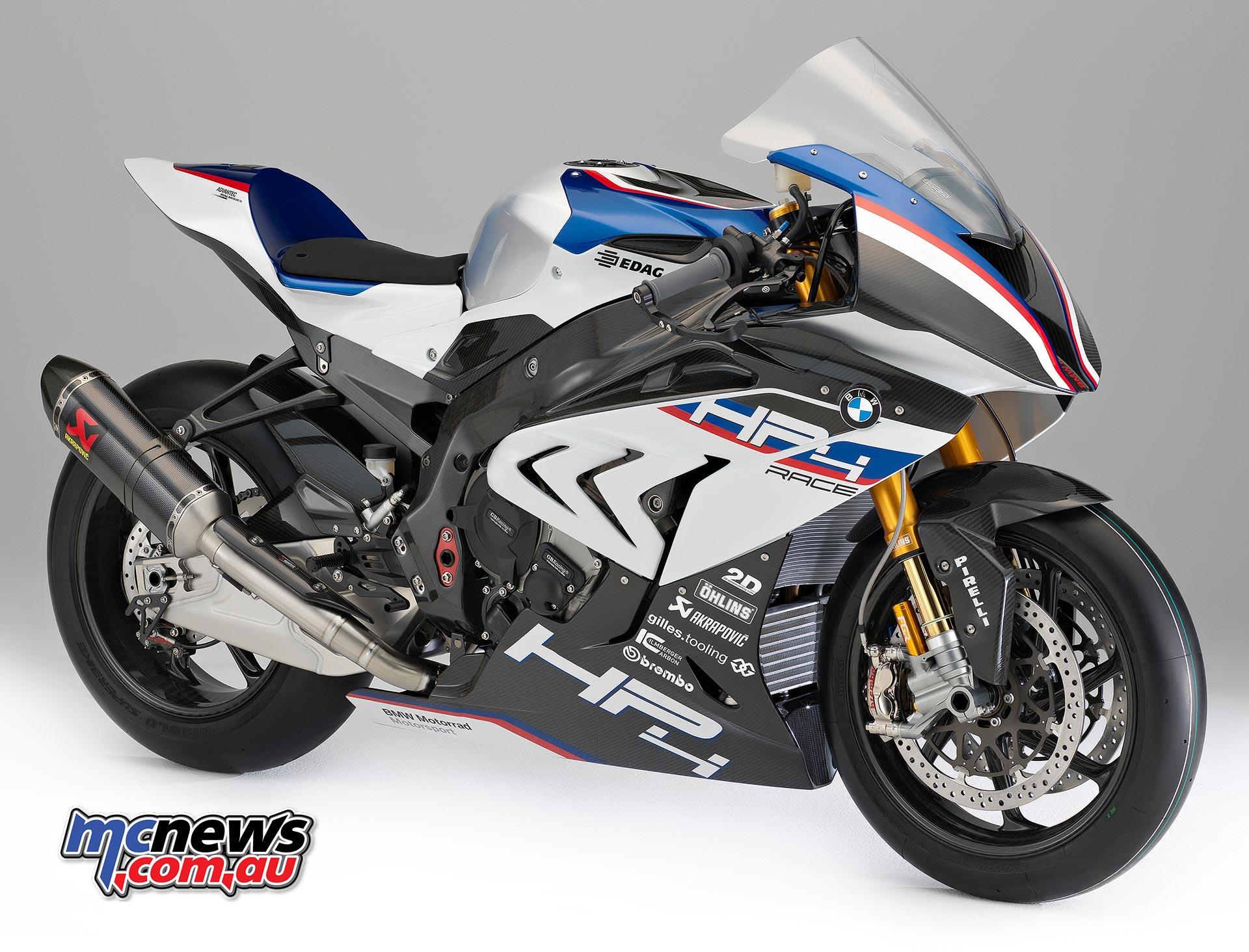BMW helmet with head up display
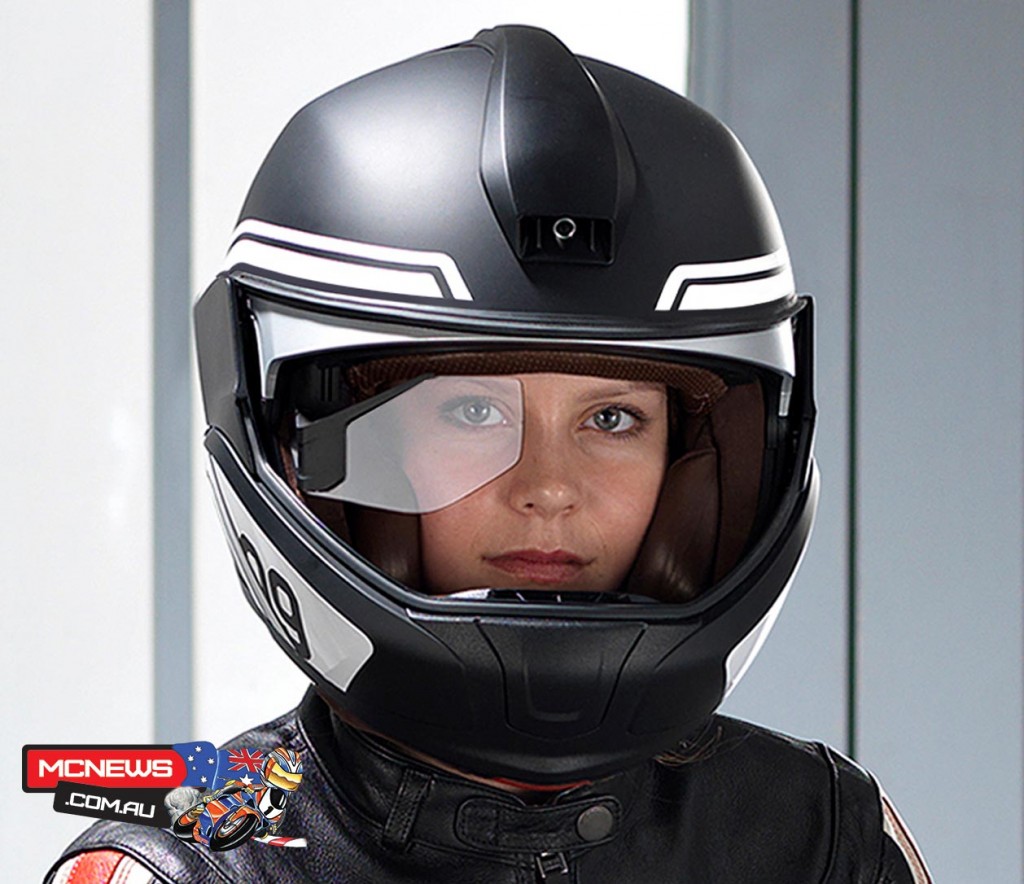
BMW Motorrad presents concepts for motorcycle laser light and helmet with head-up display
BMW Motorrad have unveiled two innovations at the Consumer Electronics Show (CES) in Las Vegas. Laser light for motorcycles and a helmet with a head-up display along with a technical outlook of how they may be employed in series models of the future.
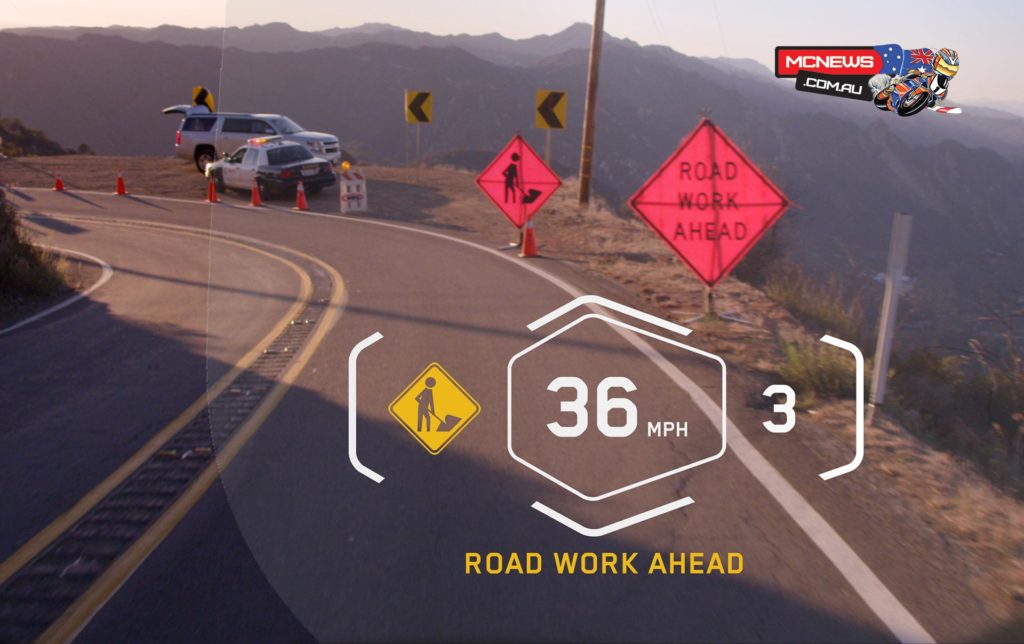
BMW Motorrad Head-up display helmet: road information always in your sights
In road traffic, it only takes a fraction of a second or a brief distraction to put the rider in a dangerous situation. In 2003, BMW became the first European automobile manufacturer to introduce a head-up display as optional equipment for BMW automobiles.
The BMW head-up display projects necessary or desirable traffic or vehicle information directly into the rider’s field of view, allowing the rider to maintain constant observation of the traffic on the road, with no distraction. This would appear even more important with motorcycles than it is with cars, because it can sometimes only take a brief visual distraction to put the rider in a critical road situation.
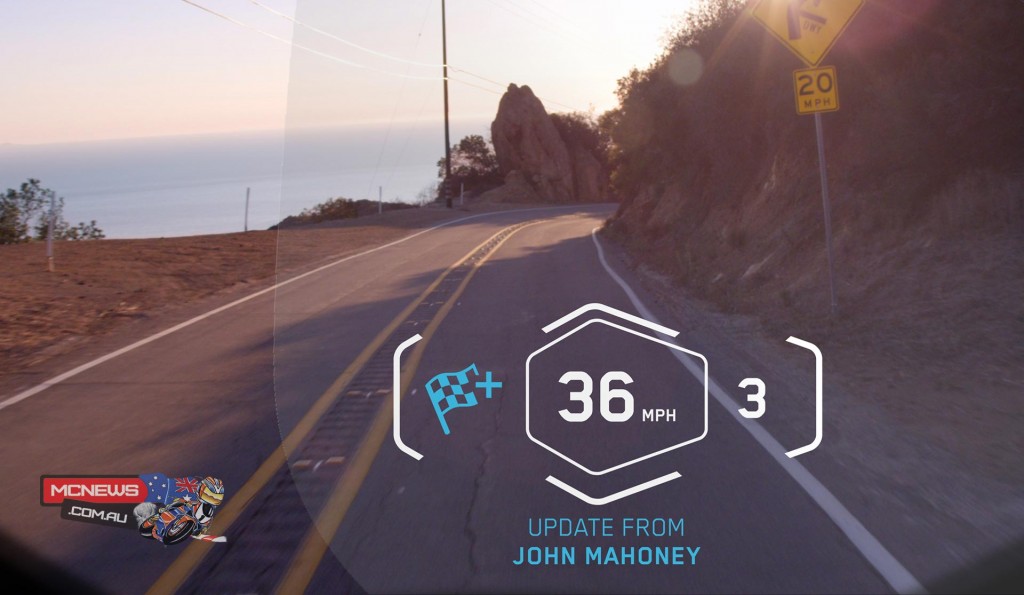
With a view to offering this technology in motorcycles of the future, a predevelopment process was conducted in which a BMW Motorrad helmet was fitted with an innovative head-up display function. This enables the projection of data directly into the rider’s field of view. This means that the rider no longer has to glance at the instrument panel and he is able to concentrate fully and without distraction on the road traffic.
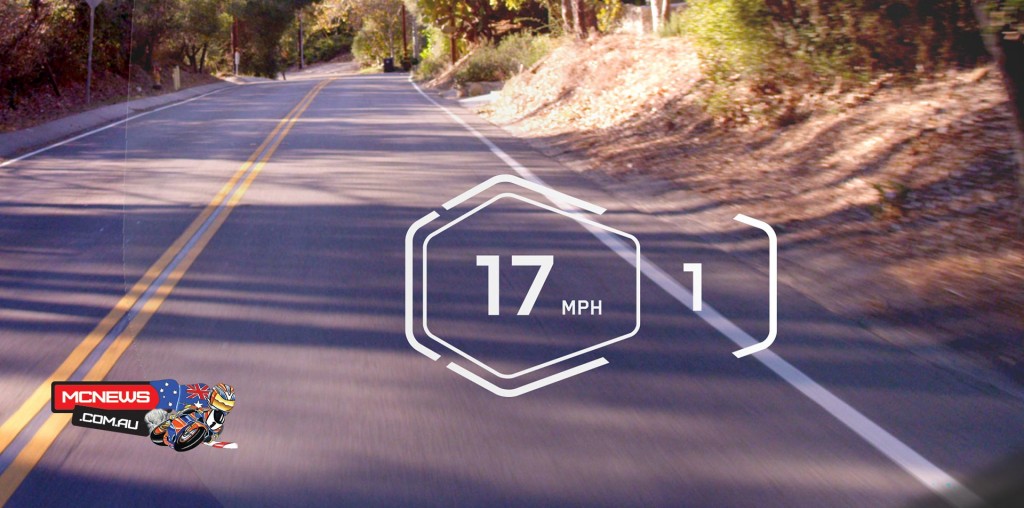
All displays are freely programmable; ideally, to provide the best-possible support for rider safety, only information that is helpful and relevant to the current situation should be displayed to the rider at any given moment.
The display options comprise safety-relevant information, for instance data relating to the technical status of the motorcycle, such as tyre pressure, oil level and fuel level, travel speed and selected gear, speed limit and road sign recognition, plus warnings of impending dangers.
By means of the future V2V (vehicle-to-vehicle) communication, it might also be possible to display information in real time, for example to give due warning of any suddenly impending hazards.
Moreover, the head-up display also allows the visualisation of content designed to increase rider comfort. An example would be the planned route along with navigation advice prior to commencing a journey.
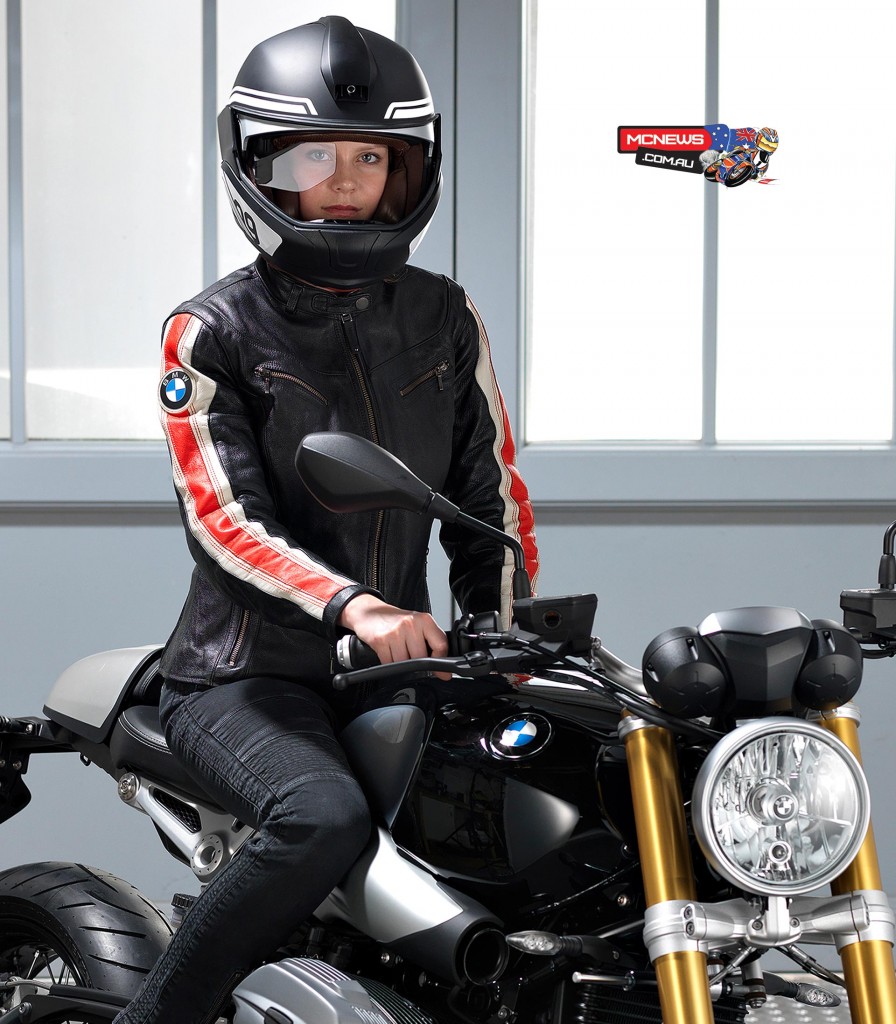
The helmet with head-up display also offers interesting possibilities for making the highly emotional experience of motorcycle riding even more intensive and at the same time safer. For instance, an action camera pointing forwards, located inside the helmet, can record video footage of the journey directly from the helmet. A second camera oriented towards the rear could at some point in the future perform the function of a ‘digital rear-view mirror’. And last but not least, this technology also enables the visualisation of other riders in a motorcycle group. This enables the rider to see where his companions are at any given moment.
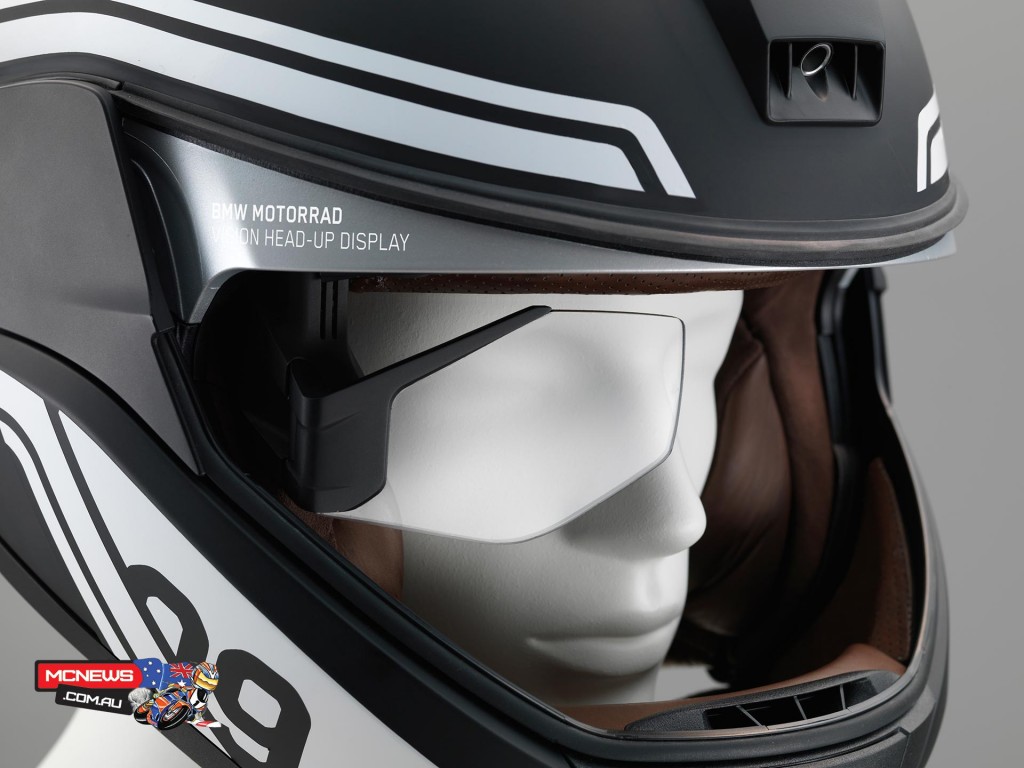
The helmet, which is also fitted with an integrated mini-computer and loudspeakers, is controlled from the left-hand handlebar fittings using the BMW Motorrad multicontroller. As well as operating the camera, this allows the rider to comfortably select the information he requires.
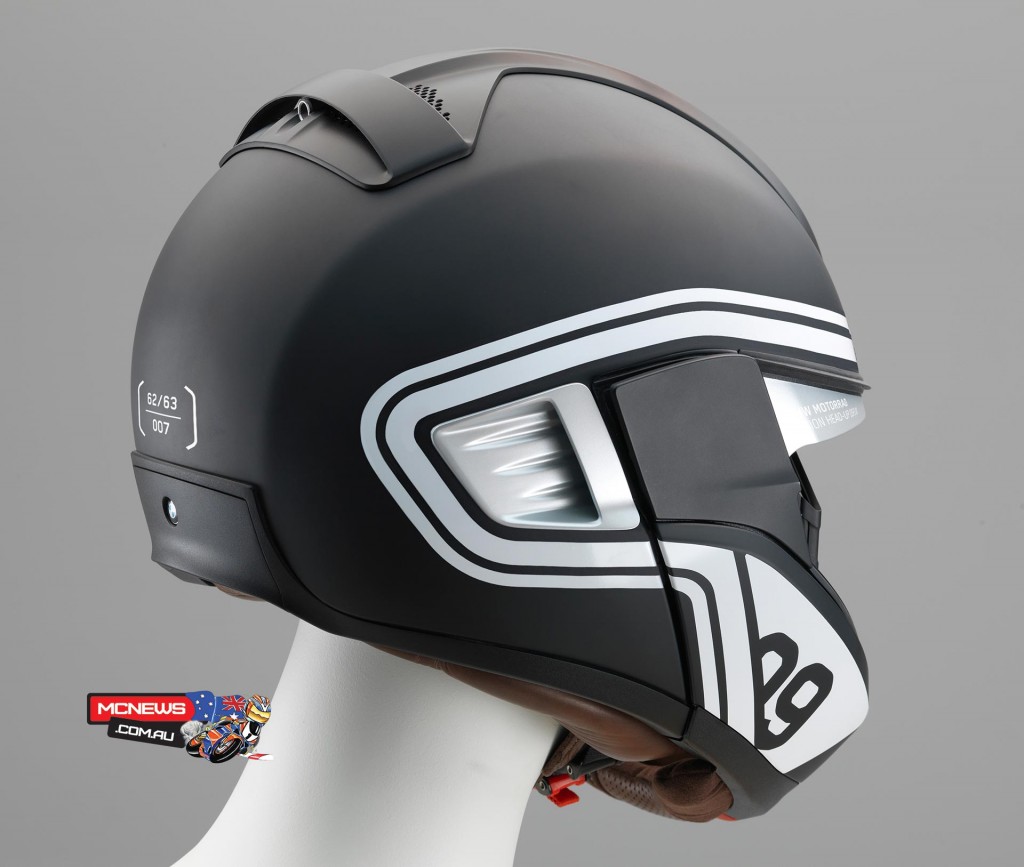
The necessary information display technology can be integrated in existing helmets, without affecting either wearer comfort or rider safety. The operating time of the system with the two replaceable batteries is around five hours.


